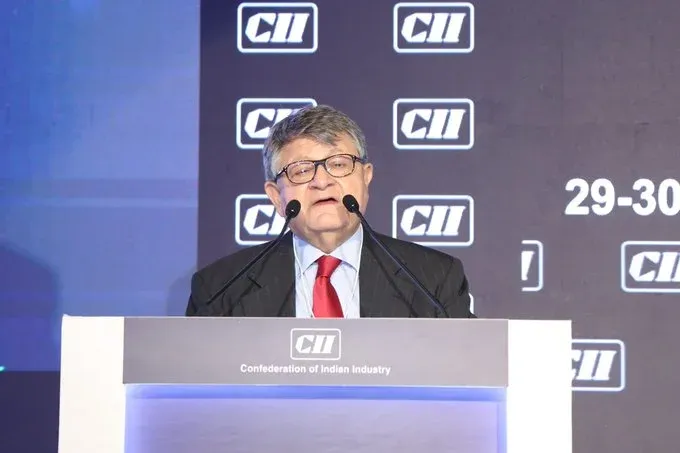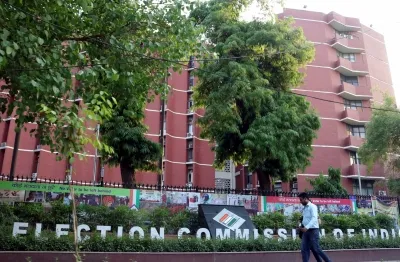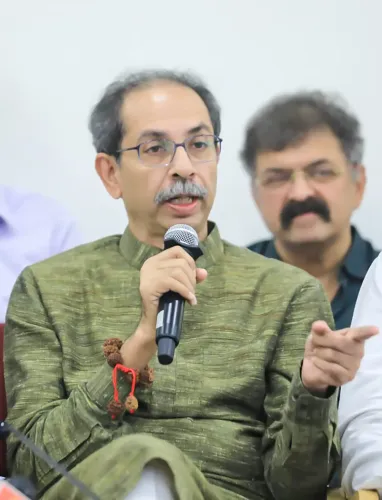How Can Labour Productivity Be Enhanced for Viksit Bharat?

Synopsis
Key Takeaways
- Labour productivity is essential for economic growth.
- India's productivity must match its aspirations.
- Transitioning workers from agriculture to industry is crucial.
- Learning from global examples can guide India's path.
- Collaboration with small and medium enterprises can enhance competitiveness.
New Delhi, May 29 (NationPress) A consistent increase in labour productivity is essential for achieving the Viksit Bharat vision, where every citizen is empowered and every Indian shares in the aspirations of a new, progressive India, stated NITI Aayog Vice Chairman Suman Bery on Thursday.
During his speech at the CII Annual Business Summit, Bery emphasized that boosting labour productivity would lead to greater value addition by tapping into unutilized capacity and enhancing labour engagement. This shift is crucial for raising incomes, improving standards of living across the nation, and harnessing the potential of India's unique demographics, alongside leveraging technological and geopolitical advantages.
Bery expressed concern that India's labour productivity is not advancing at the desired rate, especially in light of rising aspirations. He pointed out that while India's economy is half the size of the US when considering purchasing power parity, the labour force is three times larger than that of the US.
The objective should be to utilize our workforce to elevate the economy's growth, thereby creating better jobs. He noted that stagnation in productivity is an issue faced by countries like the UK and Canada. While productivity is on the rise in India, it lags behind that of China and ASEAN nations.
Bery suggested that the productivity trajectory can be divided into two segments: the first involves transitioning the population out of agriculture, and the second focuses on moving towards industry and services. This shift would not only enhance agricultural productivity but also increase industrial output. Unfortunately, this transition is progressing slowly in India, and NITI Aayog is actively working on solutions.
Industrialization poses another challenge for the nation, and policy insights can be drawn from countries like China, Japan, and South Korea, although each country must carve its distinct path and productivity trajectory, Bery continued.
"India must embrace a combination of Atmanirbharta and global collaboration to remain competitive. Emphasizing our small and medium industries, akin to Germany's approach, is vital. The Indian industry has successfully navigated the 1991 reforms and has gained the confidence to compete on a global scale," he remarked.
Bery highlighted that establishing FTAs with trading partners, exploring high-value sectors, and diversifying supply sources are crucial for maintaining a competitive edge. Competitiveness should extend beyond manufacturing to encompass services as well.
According to Bery, institutions like NITI Aayog play a pivotal role in engaging states in the journey towards Viksit Bharat, emphasizing that this initiative should involve all states, not just a select few.








